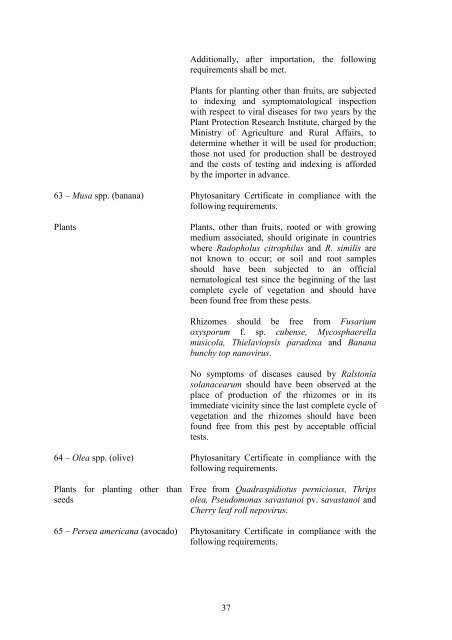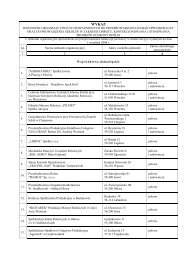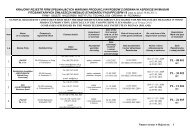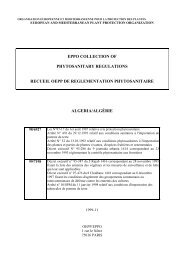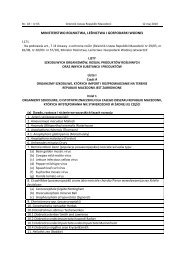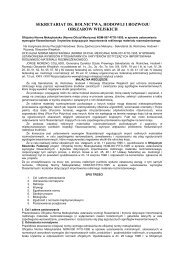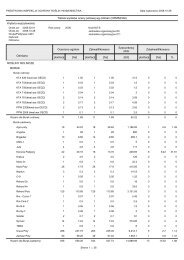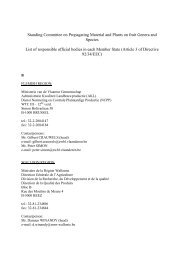eppo collection of phytosanitary regulations recueil oepp de
eppo collection of phytosanitary regulations recueil oepp de
eppo collection of phytosanitary regulations recueil oepp de
You also want an ePaper? Increase the reach of your titles
YUMPU automatically turns print PDFs into web optimized ePapers that Google loves.
Additionally, after importation, the following<br />
requirements shall be met.<br />
Plants for planting other than fruits, are subjected<br />
to in<strong>de</strong>xing and symptomatological inspection<br />
with respect to viral diseases for two years by the<br />
Plant Protection Research Institute, charged by the<br />
Ministry <strong>of</strong> Agriculture and Rural Affairs, to<br />
<strong>de</strong>termine whether it will be used for production;<br />
those not used for production shall be <strong>de</strong>stroyed<br />
and the costs <strong>of</strong> testing and in<strong>de</strong>xing is affor<strong>de</strong>d<br />
by the importer in advance.<br />
63 – Musa spp. (banana) Phytosanitary Certificate in compliance with the<br />
following requirements.<br />
Plants Plants, other than fruits, rooted or with growing<br />
medium associated, should originate in countries<br />
where Radopholus citrophilus and R. similis are<br />
not known to occur; or soil and root samples<br />
should have been subjected to an <strong>of</strong>ficial<br />
nematological test since the beginning <strong>of</strong> the last<br />
complete cycle <strong>of</strong> vegetation and should have<br />
been found free from these pests.<br />
Rhizomes should be free from Fusarium<br />
oxysporum f. sp. cubense, Mycosphaerella<br />
musicola, Thielaviopsis paradoxa and Banana<br />
bunchy top nanovirus.<br />
No symptoms <strong>of</strong> diseases caused by Ralstonia<br />
solanacearum should have been observed at the<br />
place <strong>of</strong> production <strong>of</strong> the rhizomes or in its<br />
immediate vicinity since the last complete cycle <strong>of</strong><br />
vegetation and the rhizomes should have been<br />
found free from this pest by acceptable <strong>of</strong>ficial<br />
tests.<br />
64 – Olea spp. (olive) Phytosanitary Certificate in compliance with the<br />
following requirements.<br />
Plants for planting other than<br />
seeds<br />
Free from Quadraspidiotus perniciosus, Thrips<br />
olea, Pseudomonas savastanoi pv. savastanoi and<br />
Cherry leaf roll nepovirus.<br />
65 – Persea americana (avocado) Phytosanitary Certificate in compliance with the<br />
following requirements.<br />
37


